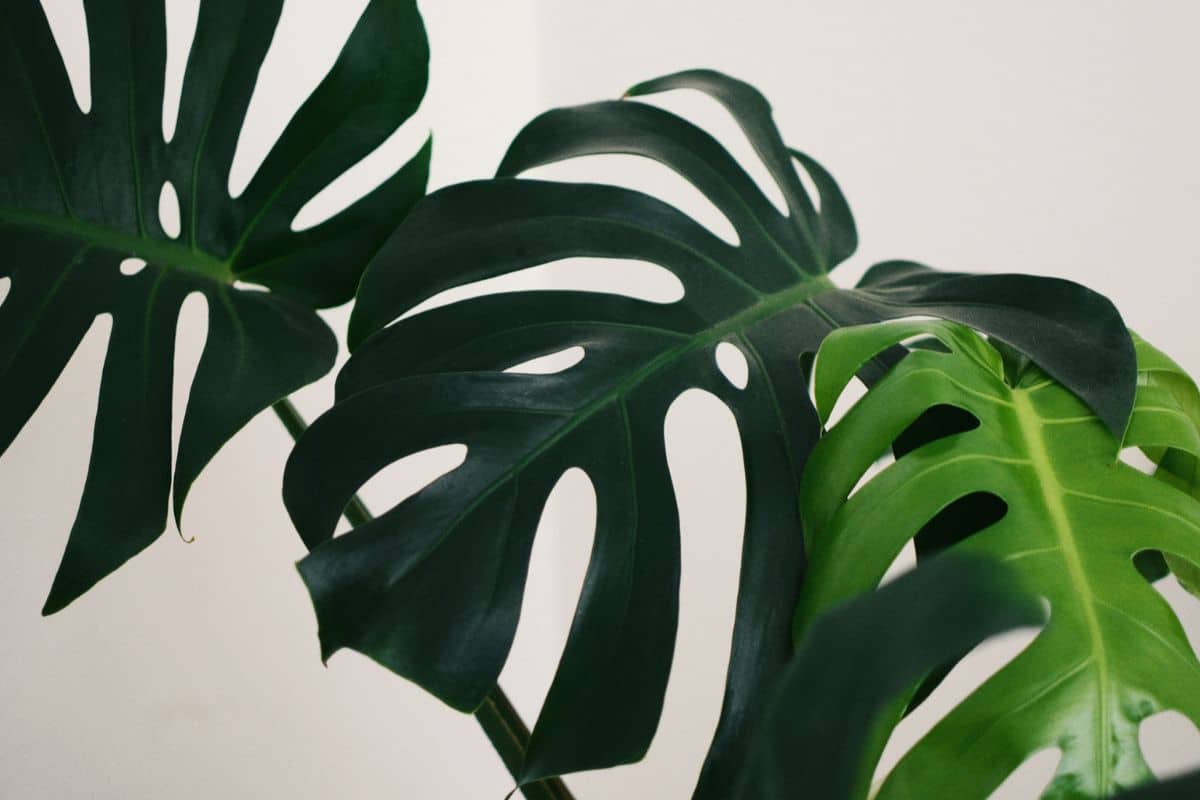The Swiss cheese plant, scientifically known as Monstera deliciosa, has gained immense popularity among indoor plant enthusiasts for its distinctive perforated leaves and tropical appearance. Beyond its aesthetic appeal, many plant owners wonder about its functional benefits, particularly regarding air purification capabilities. Let’s explore whether this trendy houseplant actually helps clean the air in your home.
Air purifying abilities of the Swiss cheese plant
The Swiss cheese plant does indeed function as a natural air purifier, though perhaps not as powerfully as some specialized plants. Research suggests that Monstera deliciosa can help filter certain airborne toxins from your indoor environment. The plant absorbs carbon dioxide and releases oxygen through photosynthesis, which improves overall air quality in enclosed spaces.
According to studies related to indoor air quality, the Swiss cheese plant can help filter common household pollutants including:
- Formaldehyde (found in many household products)
- Benzene (present in paints and synthetic fibers)
- Xylene (found in many printing materials and adhesives)
- Toluene (present in many household cleaners)
While the Swiss cheese plant contributes to cleaner air, its purification capabilities shouldn’t be overstated. To maximize air quality benefits, combining several plants in your home or office garden creates a more effective natural filtration system. The large surface area of Monstera’s leaves provides more opportunity for gas exchange and pollutant absorption.
It’s worth noting that the plant’s air-cleaning abilities work best in well-maintained and healthy specimens. Just like maintaining a healthy basil plant requires specific care, your Swiss cheese plant needs proper attention to perform its air-purifying function optimally.
Scientific evidence on plant air purification
The concept of plants as air purifiers gained significant attention following NASA’s Clean Air Study in the late 1980s. This pioneering research demonstrated that certain houseplants could remove volatile organic compounds (VOCs) from indoor air. While Monstera deliciosa wasn’t specifically included in the original NASA study, subsequent research has shown that most leafy houseplants offer similar benefits to varying degrees.
More recent scientific assessments suggest that the air-purifying effects of houseplants in real-world conditions may be more modest than initially thought. Factors such as room size, air circulation, and the number of plants significantly impact effectiveness. In typical home settings with just a few plants, the air purification effect might be minimal compared to mechanical air purifiers.
However, this doesn’t diminish the value of Swiss cheese plants in your indoor environment. Beyond potential air cleaning properties, these plants contribute to:
- Increased humidity levels, which benefits respiratory health
- Improved psychological wellbeing through biophilic connection
- Enhanced concentration and productivity in work environments
- Reduced stress levels and improved mood
The plant’s benefits extend beyond air quality, making it a worthwhile addition to your home regardless of its precise purification capabilities. Unlike some flowering plants that might negatively impact other plants in a garden setting, Monstera is generally compatible with other houseplants.
Maximizing the air purifying potential of your Swiss cheese plant
If you’re looking to enhance your Monstera’s air-cleaning abilities, several care practices can help. Proper positioning and maintenance significantly impact how effectively your Swiss cheese plant filters air pollutants.
First, consider placement. Position your Monstera in areas with good air circulation but away from direct drafts. This allows the plant to process more air without suffering from temperature fluctuations. Areas with higher concentrations of pollutants, such as near electronics or recently painted surfaces, might benefit most from plant placement.
Regular cleaning of the leaves is crucial. Dust accumulation can block stomata—the tiny pores through which plants exchange gases. Gently wiping the large leaves with a damp cloth every few weeks removes this barrier, allowing for more efficient air purification and photosynthesis.
Proper watering and nutrition ensure your plant remains healthy enough to perform its filtering functions. Overwatering can lead to root rot, while underwatering causes stress—both scenarios reduce the plant’s air-purifying capabilities. Similar to how hollow heart potatoes develop from inconsistent watering conditions, your Monstera’s health depends on consistent care.
Consider complementing your Swiss cheese plant with other known air-purifiers like snake plants, peace lilies, or spider plants. Creating a diverse indoor garden with various plant species establishes a more comprehensive natural filtration system.
While conventional wisdom suggests more plants equal better air quality, research indicates that plant density matters more than quantity. A few well-placed, healthy plants often outperform numerous struggling specimens.
Natural air purification versus mechanical solutions
While Swiss cheese plants contribute to cleaner air, they shouldn’t replace mechanical air purifiers in homes with significant air quality concerns. Think of plants as supplementary purifiers that offer additional benefits beyond air cleaning.
Unlike HEPA filters that can remove particulate matter and allergens, plants primarily address chemical pollutants. For comprehensive indoor air quality management, combining natural and mechanical filtration creates the optimal environment.
If you’re environmentally conscious, choosing plants over energy-consuming devices aligns with sustainable living principles. Similar to choosing organic or non-GMO products for health reasons, incorporating natural air purification represents a holistic approach to wellbeing.
The Swiss cheese plant offers a balanced combination of aesthetic appeal and modest air-purifying benefits. While it won’t completely transform poor indoor air quality on its own, it contributes positively to a healthier living environment when properly maintained. For plant enthusiasts seeking both beauty and function, Monstera deliciosa remains an excellent choice that brightens spaces while quietly helping clean the air we breathe.

